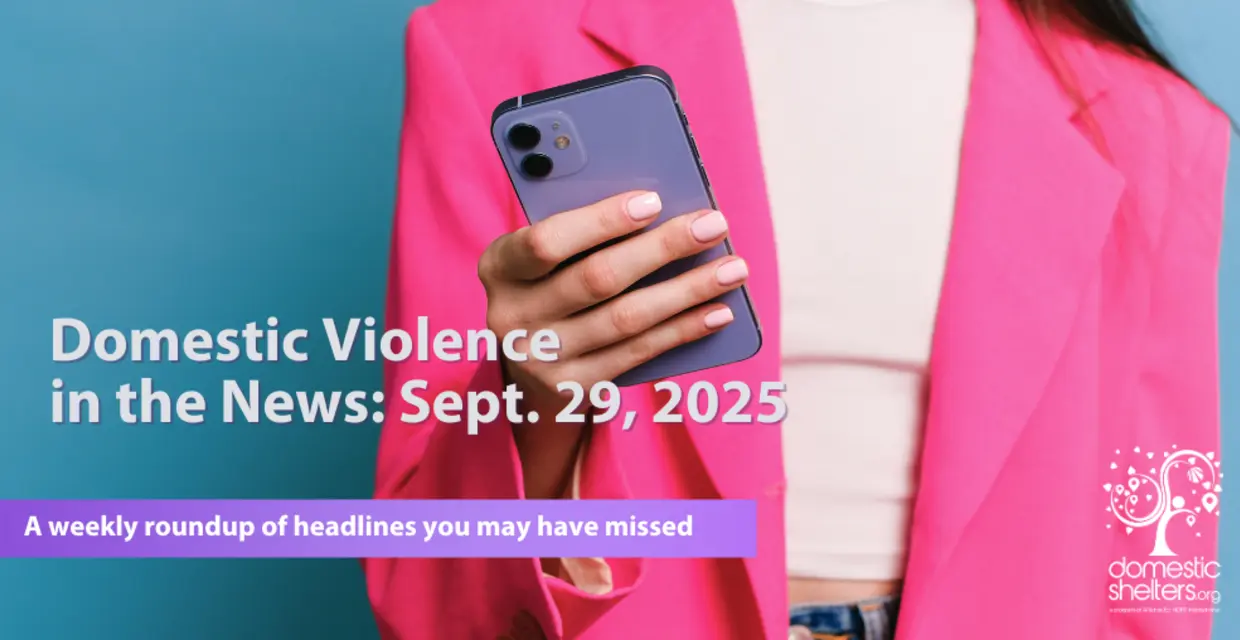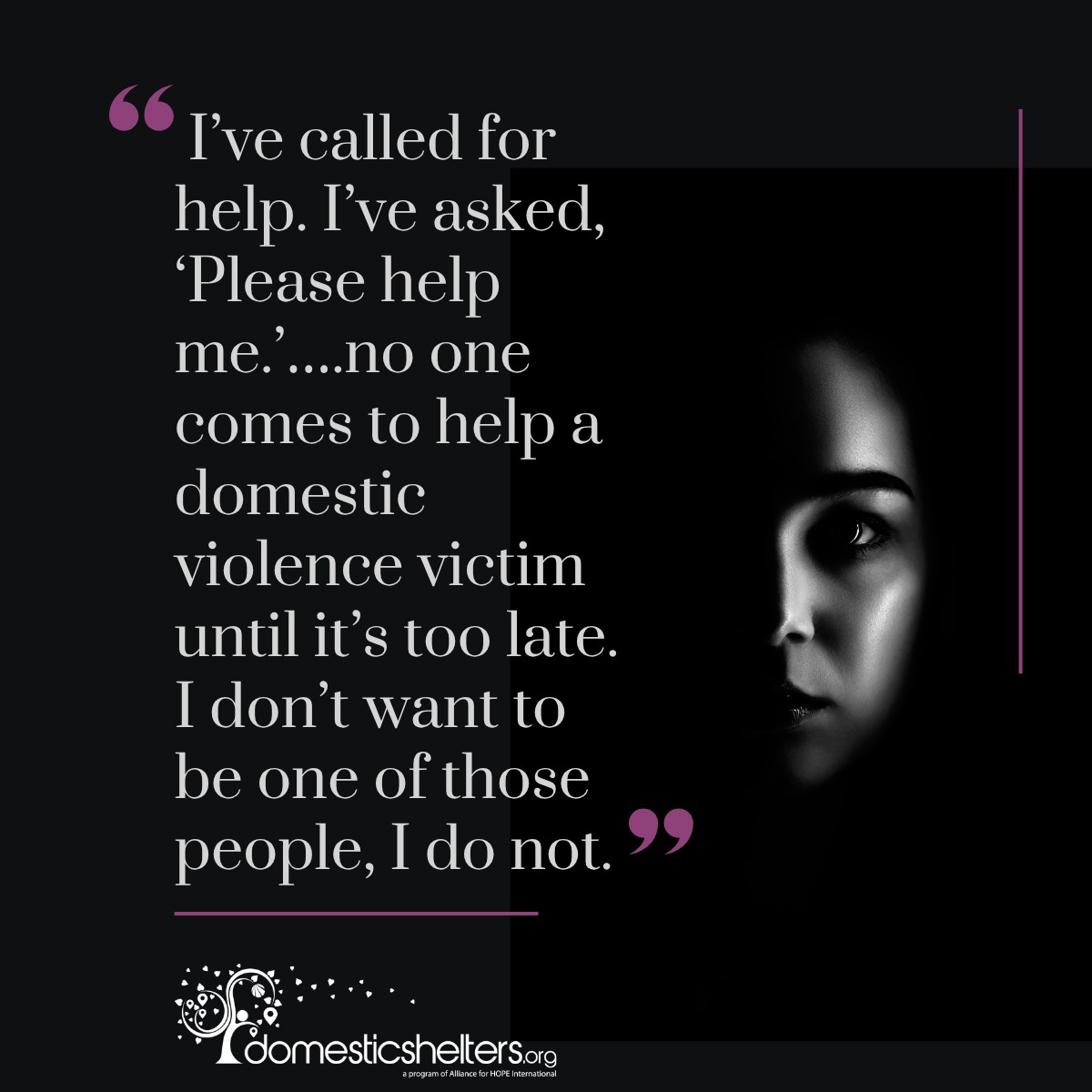1. Select a discrete app icon.

notes
Domestic Violence Headlines for the Week of Sept. 29
Wife of police officer abuser says department is ignoring her, Atlanta unveils a mobile van to meet survivors where they are
- Oct 03, 2025

Every October we raise awareness for domestic violence. Every day, the headlines raise something else: excuses.
Wife of Miami-Dade Sheriff’s Officer Abuser Says Department Has Ignored Pleas for Help
On Tuesday morning, Miami-Wade Sheriff’s Office Lt. Brian Pfeiffer was charged with second-degree robbery by strongarm after he reportedly attacked his wife during an argument. According to the arrest record, he grabbed his wife’s wrist and twisted it before forcibly ripping her cellphone away.
Pfeiffer’s wife, who was not identified, told local media that her husband had been violent repeatedly over the last two years ever since she asked for a divorce.
“He’s very violent, he’s very aggressive, he’s threatened to hurt me,” she told 7News, describing how Pfeiffer had thrown items at her in the past, shattered glass and destroyed items in their home. She also claims the police have done little to help her.
“I call the police department and when they come, everything is a domestic dispute and nothing is done,” she said. “I’ve called for help. I’ve asked, ‘Please help me.’….no one comes to help a domestic violence victim until it’s too late. I don’t want to be one of those people, I do not.”
According to the National Center for Women and Policing, domestic violence is two to four times more common among police officers than the general public. The victims of these police officer batterers are even more vulnerable because of the position of power these abusers hold, as described in “When Your Abuser is a Police Officer.”
While most police officers genuinely strive to support and protect, those who are abusive toward their partner at home often manipulate the system and deflect responsibility to avoid being charged. By controlling the narrative early and casting the victim in a negative light, they can influence how fellow officers perceive the situation before the victim is even heard.

The 50-year-old Pfeiffer, who has been employed by the Sheriff’s office since 1999, has been relieved of duty with pay and remains in jail with an unknown bond.
Miami-Dade Sheriff Rosie Cordero-Stutz released a statement following Pfeiffer’s arrest stating, “Our deputies are held to the highest standards, and I expect more responsible behavior! Domestic violence has no place in our community, and seeking help is a sign of strength. Help is available, you are not alone!”
Source: WSVN.com
California Woman’s Delayed Death Being Investigated After Domestic Violence Assault
Corona, Calif. police released a report this week detailing a suspected homicide that occurred last Thursday following a domestic violence arrest. When officers responded to the home of Avery King, 52, around 11:50 p.m., they had to force their way into the house where they found King with multiple injuries. They arrested her boyfriend on suspicion of domestic violence. King refused medical attention, and despite not wanting to press charges against her boyfriend, 55-year-old Manuel Rivera, King was given an emergency protective order. Rivera was held on a $500,000 bail.
When family members could not reach King several hours later, they asked police to check on her. Police found King dead inside her home. They are investigating her death as a homicide. Rivera had not posted bail that night.
It is unclear what injuries King suffered as a result of Rivera’s abuse, but if strangulation was involved, there is a chance that there were no visible injuries. A victim of strangulation may believe she is OK if she never lost consciousness, especially if she feels that the abuser didn’t apply pressure for very long. Any duration of strangulation is dangerous and can cause delayed death after the fact due to blood clots, stroke or arterial dissection—when the walls of the major arteries in the neck tear due to the pressure applied by the abuser squeezing or applying pressure.
An abuser’s physical assaults can put victims at risk for traumatic brain injuries, or TBIs. This can include repeated blows to a victim’s head, violent physical shaking by an abuser, striking a victim’s head against a wall or other hard surface, pushing a victim down a flight of stairs or suffocating a victim using a pillow or other object. A TBI can cause brain damage that can lead to coma and respiratory failure and be life-threatening if the victim does not receive immediate medical attention.
Survivors are highly encouraged to seek medical attention after any assault by an abusive partner, even if they think they feel OK or don’t see any visible injuries.
Source: DailyBulletin.com
Atlanta Advocates Unveil “Pearl”—a Mobile Office to Help Domestic Violence Survivors
Finally, we have a positive headline to share. The Atlanta Volunteer Lawyers Foundation’s (AVLF) Standing with Survivors program recently unveiled “Pearl,” a mobile office designed to bring legal and social services directly to domestic violence survivors in Fulton County. Inside the air conditioned van equipped with a kids’ corner, snacks and a place for individuals to feel safe and welcome, survivors can meet confidentially with attorneys, social workers and even judges. They can consult about assistance with housing, protective orders, food or even attend a virtual court hearing from inside Pearl.
With a population of just over a million, Fulton County includes Atlanta and 14 other cities. In August alone, nearly 400 people walked into AVLF’s Safe Families Office, a walk-in clinic inside the Fulton County courthouse, and the hope is that Pearl can reach even more survivors.
“There are folks out here that care about you that haven’t even met you,” says Jennifer Leaks, program manager for AVLF, speaking directly to survivors. “We care about you as a human being. We want to see you thrive.”
Several communities across the country, like Hands of Hope in Indiana and A New Leaf in Arizona, offer survivors the option of mobile advocacy, understanding that transportation may be a barrier to seeking help. Also, some survivors are intimidated by the thought of navigating a courthouse or may live in a rural area where services are nowhere near them.
When someone calls the hotline, it may be their first time reaching out,” says DiNolfi. “It is crucial for us to be that intervention, right then at that time, because you never know if this person is going to reach out again.”
Source: 11alive.com
Nebraska Man Released on Bail After Strangling Ex Proceeds to Kidnap and Assault Her
On Monday, an abuser who kidnapped and brutally assaulted his ex-girlfriend appeared in court in Lincoln, Neb., charged with kidnapping, terroristic threats and use of a deadly weapon to commit a felony. Christopher Collins, 36, was originally arrested on Aug. 21 after allegedly beating 42-year-old Jesserae Beck and strangling her 15 to 20 times consecutively, according to court documents. He was then released on bond in September, despite research that shows strangulation is the number one predictor of future homicide by an abusive partner. In one study alone, it was found that being strangled by a partner even one time increases a survivor’s risk of homicide by that abuser over 600 percent. Furthermore, repeated strangulations, which cut off oxygen and blood flow to the brain, increase a survivor’s risk of traumatic brain injury, or TBI.
While Beck had an order of protection against Collins, last Wednesday, she went to court to dismiss it, citing shared financial responsibilities with her ex-partner that required them needing to communicate. She then told her children she was going to Collins’ home to speak with him, but when she hadn’t returned by the morning, one of her children called the police.
A SWAT team located Collins and Beck at a different property Collins owned around 11:45 that evening. Beck was found with serious injuries to her head, neck, face, ribs and back and told officers she did not remember how she got to the second house. She woke up there to find Collins holding a knife saying that if she did not kill him, then he was going to kill them both. She could also smell natural gas and believed Collins was going to blow up the home. Authorities found natural gas readings were nine percent of the lower explosive limit, whereas the normal limit is zero percent.
A friend has organized a GoFundMe for Beck while she is recovering in the hospital.
Abuse is rarely a one-time event. Once an abusive partner has shown they can exert power and control, they often do it again — and the abuser often escalates the abuse, pushing the boundaries even further. Advocates stress that this cycle isn’t triggered by anything the survivor did. Survivors who are pressured to drop a protection order, or convinced that the abuser won’t repeat the violence, are not to blame for the choices the abuser makes. To learn more, read “Abuse Almost Always Escalates.”
Source: Channel 8 KLKN-TV







